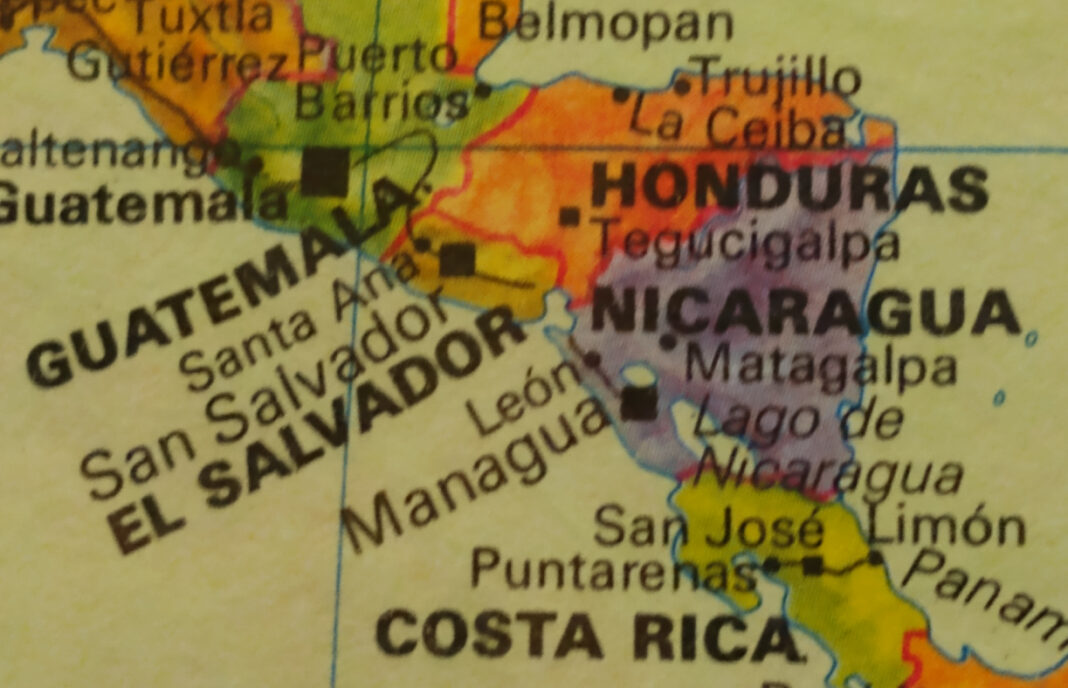UNITED STATES—There was trouble in Bananaland. First of all there was money trouble, owing the benevolent British an astronomical amount for building a railroad that would join the Caribbean Sea and the Pacific Ocean. The resulting project hardly joined two towns, much less connected the country’s two coasts. Miles and miles of meandering track serpentine nowhere since the British exercised the fine print of the contract with Honduras, granting the provision that the construction cost incurred would be calculated upon track miles laid.
Consequently, after the two-faced dealings with the Brits, exposing one monstrous face of bloody indifference and being in the claws of greed and cupidity, and as a result, the inroads of a new disease to rival that of yellow fever and malaria. It would be a national nervous disorder labeled gringophobia.
The national debt coupled with nascent gringophobia wasn’t the worst of the country’s troubles.
Miguel Padilla Ortiz got replaced in a coup d’état The year after Sam Delaney’s marriage to Rebecca Steinhardt, which was a love match, as well as it was the joining of two banana dynasties. Rebecca’s bibulous dad, Cornelius Steinhardt, who made and lost fortunes and made them back only to joyously lose them again at the gaming tables he really loved.
That the marriage didn’t turn out to be the bloodless business deal, to put some ballast in his freewheeling ways was a happy disappointment, one of the happiest disappointments of Sam’s life. Which had the unforeseen byproduct of making his fulfillment of his plans a matter of duty now over heart. Sam always had plans. He desired to change the regime in Bananaland, since the reigning president was making life hard for the Company and demanding taxes and would make the cost of doing business go up. (This is so amazing it was really the blowback: From the President Saavedra looking for a way out from under the country’s staggering debt owed to London banks and bondholders. By the turn of the century it was 100 million, and the clock was ticking with alive money, spurred by the interest that is yeast.
President Patino turned to the Americans for help. The Secretary of State Phineas Cox had worked out a deal. J. Pierpont Morgan would by the debt for 15 cents on the dollar and with the provision that a Morgan rep would be on duty at the Custom House in Puerto Cortés, formerly Port of Horses, to collect duty on all exports.
The zeroes started chasing him, and Sam Delaney knew with his American head for numbers and his Russian heart, he knew that it would be curtains for his business. So Sam did the most American to do, to protect all he had created out of sweat, ambition and scrappiness and working like a dog after first becoming smitten by seeing a peddler sell a greasy scrumptious yellow thing in Selma, Alabama and with only two words of English, then taking risk after risk, time after time, paying off debts and coming out ahead–he hired lobbyists to sway Washington. He did the right thing, the American thing. When that didn’t work he started a propaganda blitz with advertisements of babies crying over not being able to have bananas with their Cream of Wheat and the editorials ghosted by respectable hacks. After tracing this campaign back to Sam Delaney, Secretary of State, Phineas Cox summoned the banana man to Washington.
“Mr. Secretary of State…”
Knox interrupted him before he had finished speaking. Sam often wondered what possessed these people, such as the portly Secretary of State Phineas Cox, to be so grouchy.
“Our plan to collect taxes at Honduras as a fixture of our charity to Spanish Honduras.”
“But sir, Mister Secretary, it will mean the end of Chamelecón – all I have worked my ass off for, if you will excuse my profanity, Mister Secretary Cox and the end of all my Honduran workers hopes if my business shall fold.”
“The Cox plan is more important that any banana company.”
The government minister, who exuded no warmth, nor invited Sam to take one of the plush seats, had given a tone in pronouncing banana that deeply rubbed Ham the wrong way, not that the tiniest muscle in his face or gaze betrayed it. Sam was appalled.
“Sir, you may not know how much give to this country I was born to be in without being born in.”
“There no stopping my plan now,” the secretary said bloodlessly, not even looking him in the eye.
Sam turned away: he was showing too much feeling. He drily turned back to the man and bid goodbye with a faint bow of the head and left the gentleman with a hand extended to the wind.
Only after getting halfway back to New Orleans on the train, did Sam awake from a drowse, somewhere neear Louisville did Sam rouse and say the name, “Joe Holly…”






